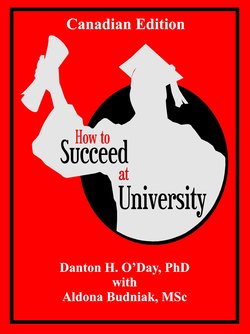Читать книгу How to Succeed At University--Canadian Edition - Danton O'Day - Страница 19
На сайте Литреса книга снята с продажи.
Courses and Calendars
ОглавлениеOne of the most dramatic differences between high school and university is the wide variety of courses available at the postsecondary institution. At a large university you will have literally hundreds of courses to choose from, ranging from anthropology to musicology to zoology. Even small universities will have a large number of disciplines in which you can specialize.
As a result, the most important book you can acquire for sorting through this academic maze is the university calendar. You can write to the universities that interest you and request their calendars, or, more conveniently, you can usually find them as PDF documents on the universities’ websites. Your school library or a local university library also may have calendars you can look at. Don’t select a university until you have visited the universities you are interested in or have checked out their calendars and websites and talked to others who have first-hand knowledge of the institution.
The calendar is your academic bible and complete information guide. It will tell you the high school requirements for each program and explain the minimum number of courses you need to get your degree and the general requirements that have to be met. It will show which courses are required to complete a specific program and how many courses are optional. The calendar is divided into sections for each discipline or area of study. So if you are interested in English or history, for example, you simply use the index to find the section and see what courses are listed. The essential contents of each course are also outlined.
The university calendar also has much other useful information. It will tell you how to register, enrol and withdraw from courses. It will explain how to transfer from one university to another. It will detail the grading scheme for that university and the grading regulations. In addition, it will contain information on all other aspects of your academic progress: transcripts, appeals, academic offences (e.g., cheating) and other valuable data.
If the calendar is complete, it will also give you information about other resources available, such as student housing, library facilities, athletics and student organizations. It lists the names and positions of the academic faculty. Thus it is a valuable reference book when you want to find out whom to see about a specific problem.
